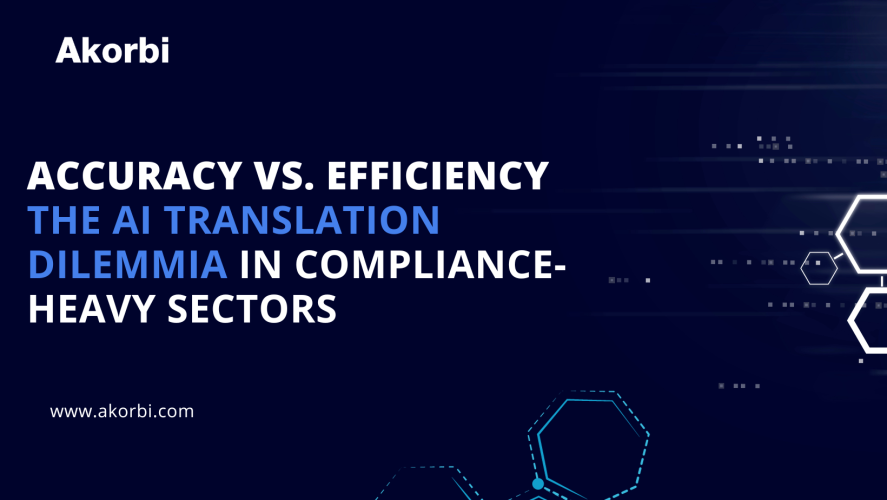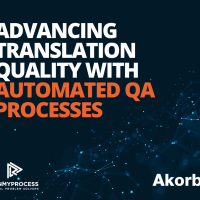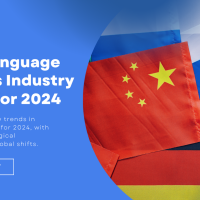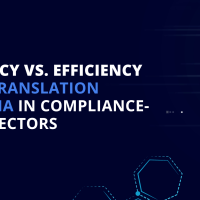
Solutions, Industries, Technology
Jan 9
Accuracy vs. Efficiency: The AI Translation Dilemma in Compliance-Heavy Sectors
The Risks of Using AI Translation in Compliance-Focused Industries
As technology continues to advance, more and more industries are turning to artificial intelligence (AI) for various tasks, including translation. With the promise of faster and more efficient translations, it's no surprise that AI translation has gained popularity in recent years. However, when it comes to compliance-focused industries such as legal, healthcare, and finance, the risks of using AI translation cannot be ignored.
The Potential Risks
Using AI translation in compliance-focused industries comes with certain risks, including inaccuracies and potential legal ramifications. While AI can translate language quickly, it lacks the human touch and understanding needed for accurately translating complex and nuanced content. This is especially concerning in industries where accuracy and precision are crucial, as even a small mistranslation can have serious consequences.
A major risk that arises from AI translations is the potential for misinterpretation of important documents and information, leading to legal disputes or other issues. In some cases, using AI translation may even violate industry regulations, resulting in fines or penalties.
AI translation tools also struggle with context and culture-specific nuances, posing a risk of harmful miscommunication in sensitive areas like healthcare, legal, and finance. For instance, a poor translation of a medical document could have life-altering consequences for a patient.
AI tools may inadvertently expose sensitive information, lacking the same level of data privacy assurance as human translators. This could lead to breaches of privacy regulations and severe legal repercussions in industries where confidentiality is paramount.
The Consequences of Inaccurate Translations
In industries such as legal, healthcare, and finance, the consequences of relying on inaccurate translations can be severe. For example, in the legal field, mistranslated contracts or agreements could result in breached partnerships or lost business opportunities. In healthcare, incorrect translations of medical records or instructions could lead to serious health complications for patients. And in finance, mistranslated financial documents could result in incorrect calculations and potential monetary losses.
The Importance of Human Touch
While AI translation may seem like a convenient and cost-effective solution, it is important to remember that accuracy and attention to detail are crucial in compliance-focused industries. This is where the human touch comes in. Human translators not only have a deep understanding of language and culture, but they also possess the necessary expertise and knowledge in specific industries to accurately translate complex content.
Partnering with Akorbi for Translations
In recognition of these potential pitfalls, Akorbi approaches translation with a unique blend of technology and human expertise. While we do employ AI to streamline the process, we rely on the precision of our specialized linguists to review and refine these automated translations. This approach, known as post-editing, allows us to leverage the best of both worlds - the efficiency and cost-effectiveness of AI, with the cultural knowledge and nuanced understanding of language that only a human translator can provide. It's how we ensure that you receive accurate translations, without sacrificing speed or incurring excessive costs. Our primary aim is to provide you with top-notch translation services that meet your industry-specific needs. With Akorbi, you get more than just a translation service, you get a partner who understands the importance of accuracy in your industry.



